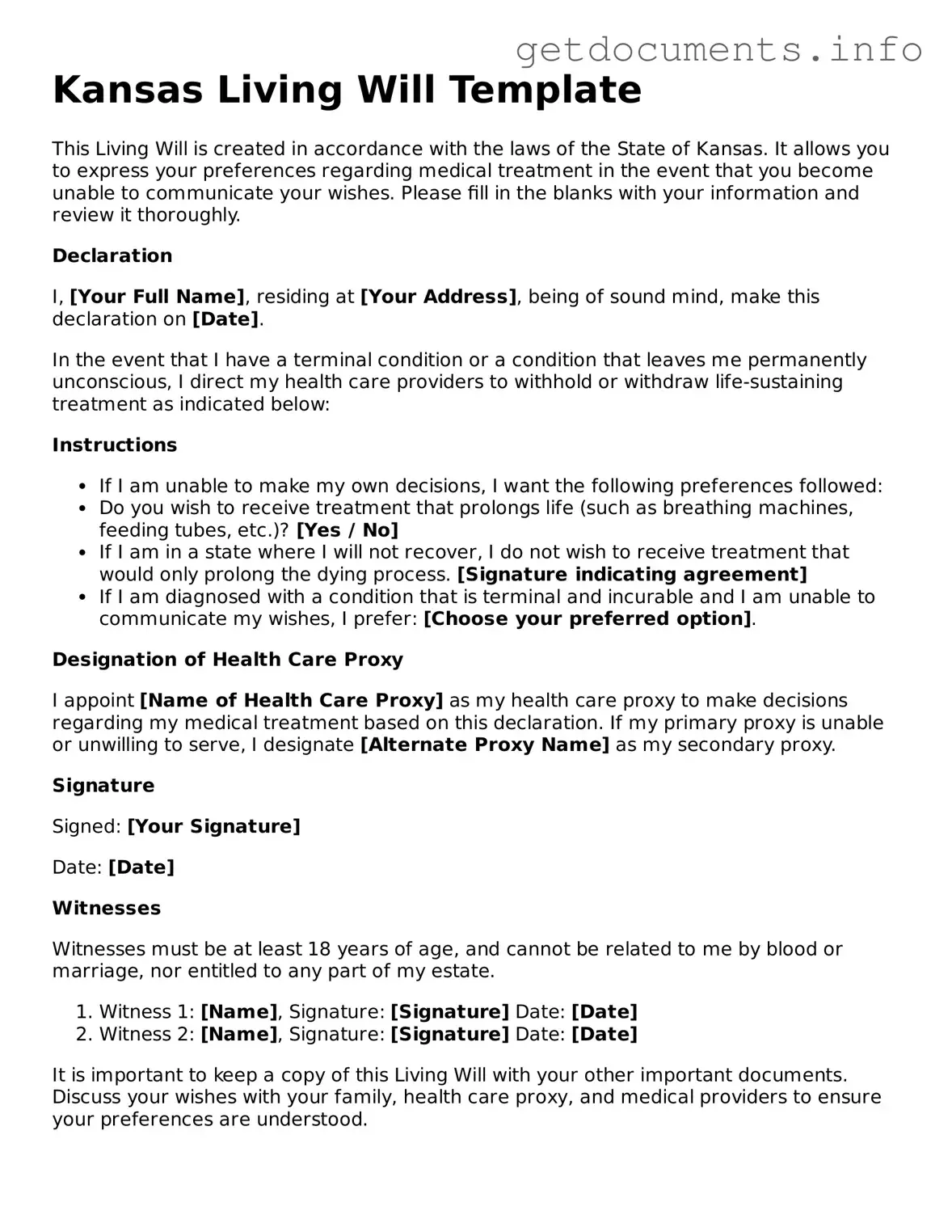Free Living Will Template for Kansas
A Kansas Living Will is a legal document that allows individuals to express their wishes regarding medical treatment in the event they become unable to communicate their preferences. This important form ensures that your healthcare choices are respected, providing peace of mind for you and your loved ones. Ready to take control of your healthcare decisions? Fill out the form by clicking the button below.
Access Living Will Editor

Free Living Will Template for Kansas
Access Living Will Editor
Got places to be? Complete the form fast
Fill out Living Will online and avoid printing or scanning.
Access Living Will Editor
or
⇩ PDF File
